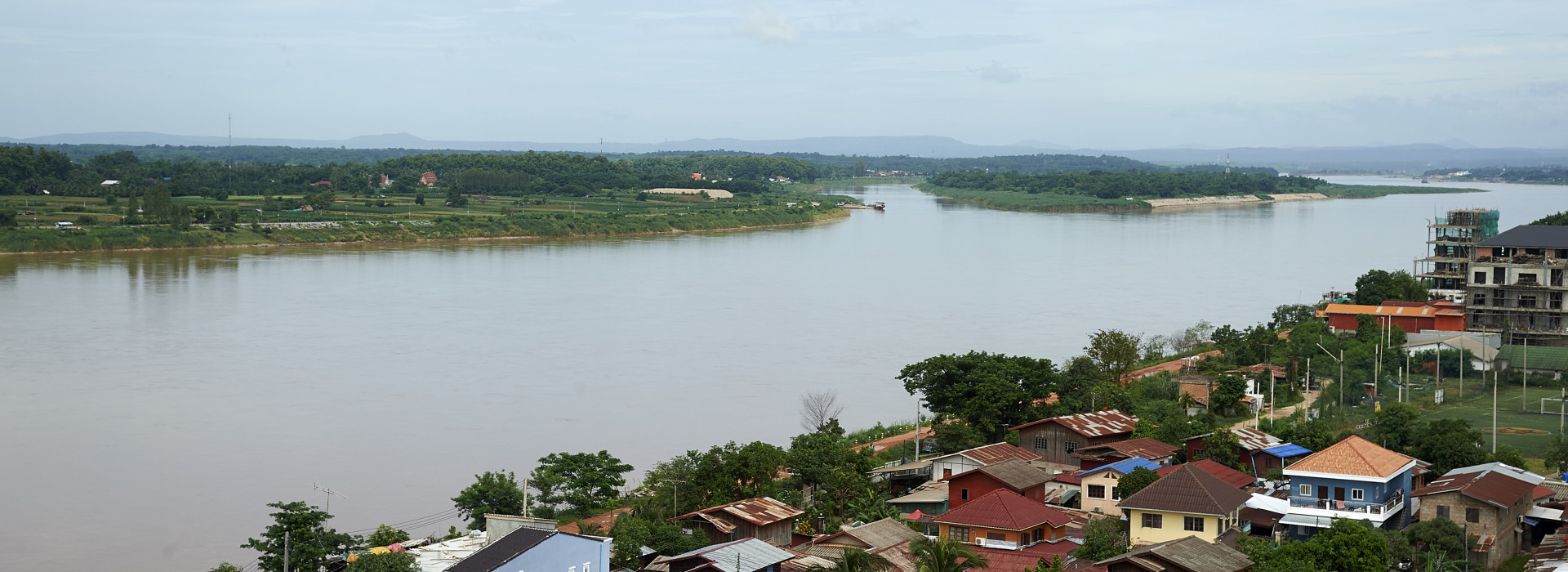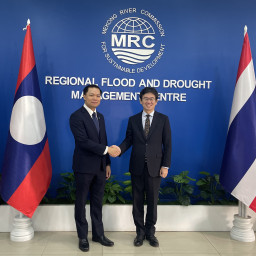MRC supports Laos in advancing national climate change adaptation planning
Vientiane, Lao PDR, 05 October 2018 – The Mekong River Commission (MRC) strongly supports Lao PDR in the country’s endeavor to advance its national climate change adaptation planning, says an MRC Secretariat official.
MRC Secretariat climate change adaptation specialist, Dr. Nguyen Dinh Cong, unveiled this positive intention of the Commission during a workshop on a project to build the capacity of the Lao government to advance the national adaptation planning process, which took place this Monday in Vientiane and attended by some 45 people from the government and development organizations in Lao PDR.
“We’ll utilize recent information and findings from our studies to support Laos in bolstering its national adaptation planning by updating the country’s climate change information system and mainstreaming climate change adaptation into sectoral strategies and development plans,” Dr. Cong said at the workshop, which was co-organized by Laos’ Ministry of National Resource and Environment and the United Nations Environment Program.
He added the MRC has just finished formulating a basin-wide climate change adaption strategy ‘Mekong Climate Change Adaptation Strategy and Action Plan (MASAP)’ and carrying out studies on basin-wide assessment of climate change impact on the Mekong water resources and related sectors.
The MASAP and studies were both done with extensive consultation with and contributions from the MRC member countries of Cambodia, Lao PDR, Thailand and Vietnam and relevant stakeholders. This means that the two are highly relevant to the current effort by the Lao government.
“While these studies spell out possible impact of climate change on the Mekong water resources and related sectors, the MASAP underscores strategic priorities and actions at the basin scale to address climate change risks and strengthen basin-wide resilience,” Dr. Cong said.
For example, the studies show the Mekong basin is vulnerable to several climate change impacts that include a predicted mean temperature rise of about 0.8 degrees Celsius by 2030. An annual Mekong river flow in Vientiane would also be reduced by 50% in the next 40 years under a dried climate scenario. Besides, throughout the lower Mekong basin, an average annual cost of the repercussions of floods alone ranges from $60 to 70 million.
Informed by these findings, the MASAP identifies critical dimensions of development requiring transboundary cooperation to adapt to climate change, and enhances the capacity of member countries, including Laos, in implementing their own national strategies.
In terms of climate-resilience for the lower Mekong basin, the MASAP contributes to ensuring that people, communities, businesses, and other organizations be able to cope with current climate variability as well as adapt to future climate change, preserving development gains, and minimizing damages.
“Over the coming months, we’ll discuss with the Lao government on the mechanism and method of support and collaboration to ensure a better climate change adaptation in Lao PDR,” Dr. Cong said.
-END-





